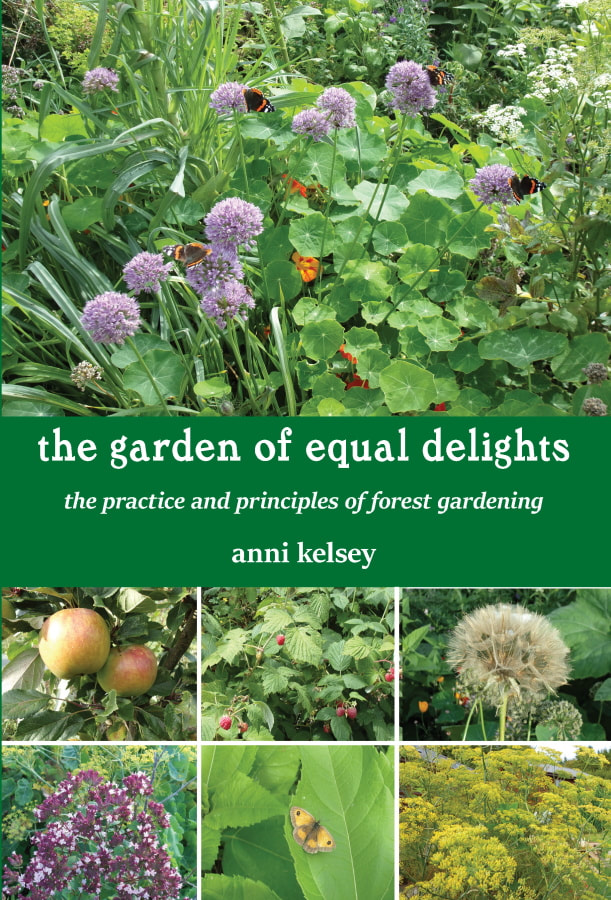Finally some good news! Anni Kelsey’s new book, The Garden of Equal Delights, was published yesterday.

This is a book about how to be a forest gardener. It is not a ‘how to’ garden book. The emphasis is on being and becoming, rather than doing. Anni shows us that forest gardening is a different type of gardening from the horticultural norm; one which requires a different type of gardener. Her book shows how the garden and gardener can grow together in a process of co-creativity in which an abundant ecosystem emerges. The job of the forest gardener, suggests Anni, is largely one of learning to keep out of the way; to sit on ones hands. To watch, and wait, and learn from the garden about how it wants to grow. The gardener may then make gentle, informed interventions – a nudge here, a suggestion there – without being wedded to the outcome. But this isn’t necessarily as easy as it sounds; it takes practice. By telling the story of her own garden, Anni shows us how she developed this practice.
The book first reminds us what a forest garden is. Anni explains how it is a different type of garden – a self-supporting ecosystem. The main chapters then suggest what kind of ‘tasks’ this type of garden requires. Anni gives some practical examples of observations from her own forest gardens, and the subsequent actions (or rather non-actions) that she took. From these, she unfurls a set of principles that can be used by other gardeners to reflect on their relationship with their gardens. These principles were developed through watching her own garden and listening to her internal dialogue with it. The work of the forest gardener, she suggests, shifts from traditional tasks of digging and weeding, to more observational ‘tasks’ of watching, waiting, and learning how the garden develops as an ecosystem. She acknowledges that watching and waiting can be uncomfortable, as the gardener gives up their enculturated urges to tidy or weed and lets the garden run rampant. The gardener allows this to happen. Their job is to watch carefully as an ecosystem slowly develops that no longer requires pest management, weeding, or added fertility. Only once the forest gardener begins to understand this ecosystem, and the many interactions occurring within it, can they begin to gently intervene. They may make introductions to increase biodiversity – and then stand back and watch rather than trying to control what happens next. This is a patient, absorbed quality of watching with no agenda other than noticing what is going on. Anni shows us how she evolved this gentle, watchful role in her own garden, and how she learned to delight in its complexity and abundance. Her development of the gardener’s role into one of appreciation and humility brought her to a transformational understanding of her place in the world, and perhaps our place in the world. Slowly, gently, the garden changed the gardener.